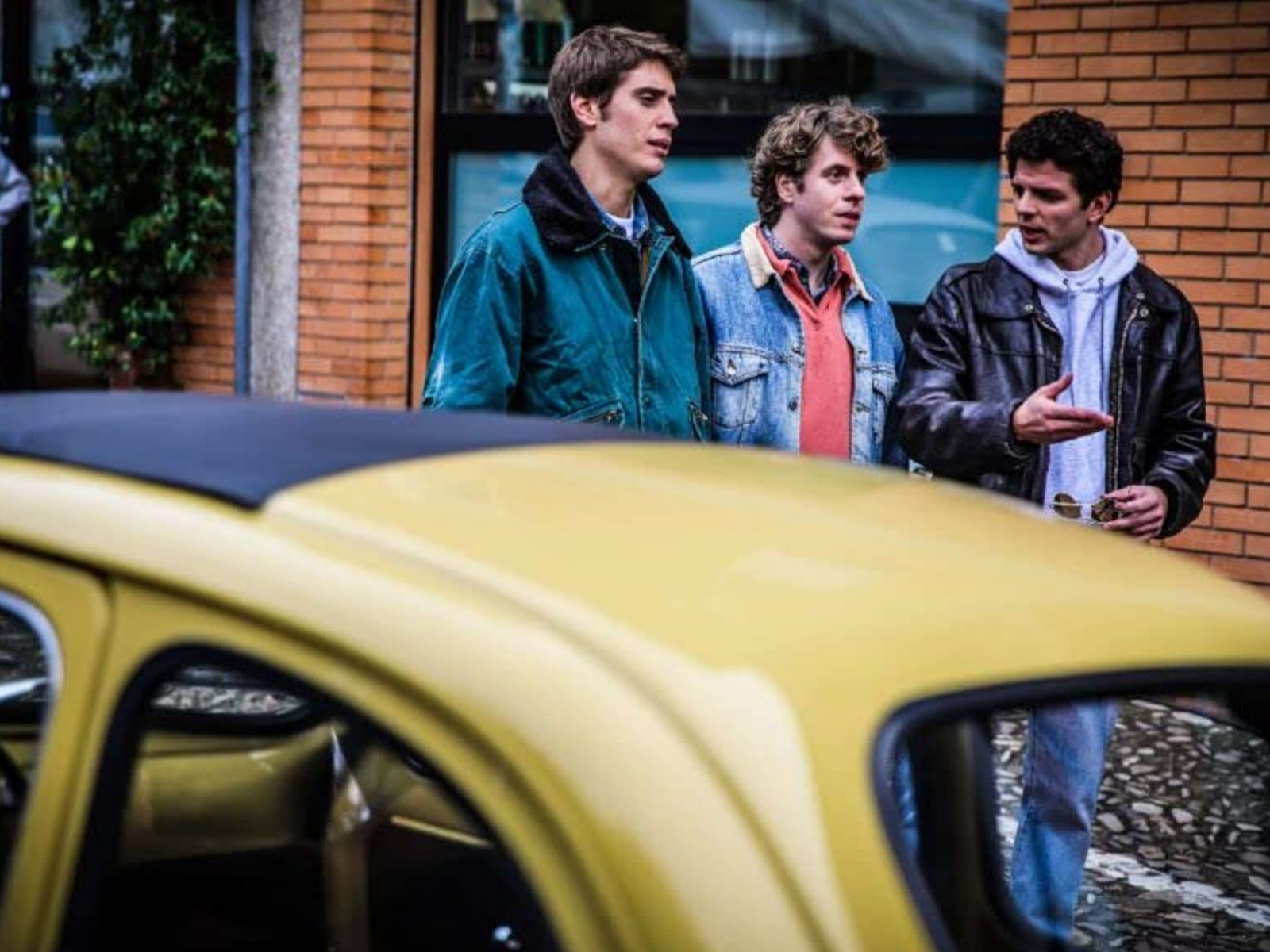
- Golden Globe Awards
EST – Dittatura Last Minute (Italy): Interview with Antonio Pisu
How about taking a road trip from Italy to the countries where Soviet rule is still in place? In 1989, right after the fall of the Berlin Wall, that’s what three friends from the city of Cesena – Pago, Rice and Bibi (played by Lodo Guenzi, Jacopo Costantini and Matteo Gatta) – decide to do, in search of fun and adventure. They get more than they bargained for. Antonio Pisu’s EST [East] tells the story of a romp through the cracks of the dying Soviet regime in Eastern Europe. In Budapest, Hungary, the three young men meet Emil, a refugee from his native Romania, where dictator Ceausescu still holds power. Emil is worried about his family back home and asks the trio for a favor: to take a suitcase to his wife and daughter. What’s in the suitcase remains a mystery. After a series of unexpected events, the suitcase will be delivered, and a few weeks later, just before the fall of Ceausescu, Pago, Rice and Bibi will have safely returned home, to Italy.
EST, written and directed by Antonio Pisu (this is his second feature film, following 2017’s Nobili Bugie – white lies), is based on a true story. “I felt it was a perfect story to be told today”, says Pisu, who also co-produced the film with his brother, Paolo Rossi Pisu and their company, Genoma Films, which they founded in 2014. “In a moment in which individualistic societies seem uninterested in offering others a helping hand, I think the time to pause and reflect has arrived,” says Pisu, speaking by phone from Milan, Italy.
How did you learn about this story?
It was Maurizio Paganelli – Pago – who told me about it. I found their adventure fascinating. I met Maurizio at the Cannes Film Festival in 2017, when I was presenting Nobili Bugie. He approached me and told me his story; he wanted to make a movie out of it, and here we are now.
What was the most fascinating part for you?
The story of three young men coming from the economic boom of the mid-late ’80s in Italy and Western Europe who enter a place of which very little was known, the Soviet-dominated Eastern countries behind the Iron Curtain. Especially in Romania, where the horrible dictatorship of Ceausescu was still alive and well. It was a culture shock for them, to say the least. The film is a road movie between Italy and Hungary and Romania – we retraced the exact same itinerary the three friends did in 1989.
How much was invented in your film for “artistic reasons?”
The main events and background are very close to the original, but we also added quite a few things: it’s basically a novelization of these men’s real story. For example, they knew the content of the suitcase, the man who gave it to them opened it and showed it to them. But in the film, for reasons of suspense, and to add drama, we decided to keep the suitcase closed and its content a mystery, so as to leave the audience with a further sense of curiosity. I believe that fictional dimension was needed for the film.
The suitcase is a sort of allegory of what, in your words?
You are somehow scared of the unknown, but in the end the three friends discover there was nothing to be afraid of in its content and the human value of that. I’d also say, without giving away too much, that some simple things that for the “spoiled” Westerners mean very little, can mean everything instead for other people. A Coca-Cola, a lipstick, a dress – these are dreamed-of commodities in certain countries. The film’s main theme shows how your point of view can change depending on the place in the world you find yourself in.
How much did you know about that period, and about Romania before the fall of Ceausescu?
Very little: in 1989 I was still a child. I had to study a lot to become familiar with this subject. What I love about cinema is the way it makes you study and learn about so many different things; the questions it makes you ask about different places. It’s a very enriching endeavor. I spent a good amount of time in Romania prior to the shooting of the movie. I met many Romanian people, who told me their story. I also used many Romanian actors for the film. They are all fantastic.
EST has been shown in many festivals around the world, to much acclaim. Surprised?
We were blessed with an auspicious debut at the “Giornate degli Autori” at the last Venice Film Festival. Oliver Stone saw it and publicly praised it – that was such a joy and honor. The film went on to win awards in Istanbul, Calcutta, Amsterdam and Siena. It was picked up by distributors and was supposed to debut in theaters last November 5th, in Italy. Unfortunately, because of the pandemic, we’ll have to be patient and wait.